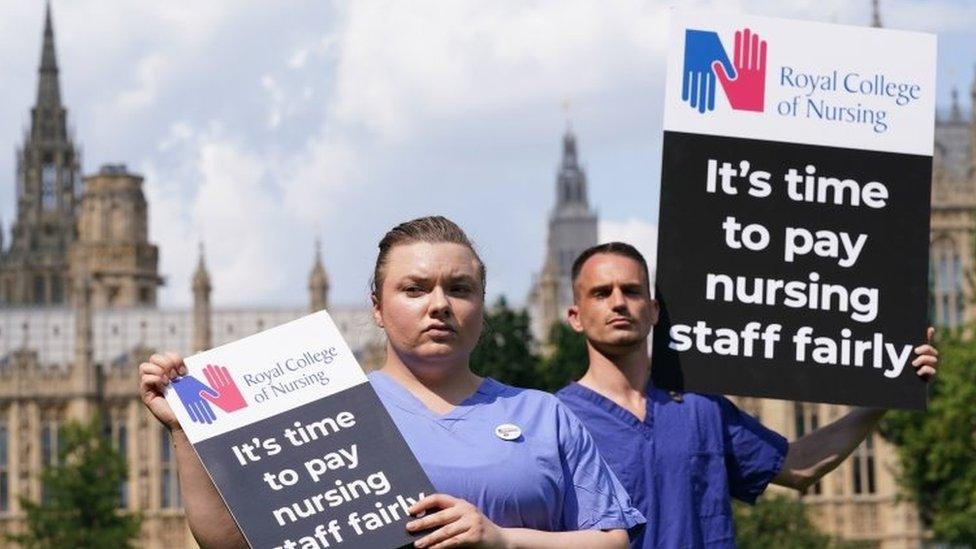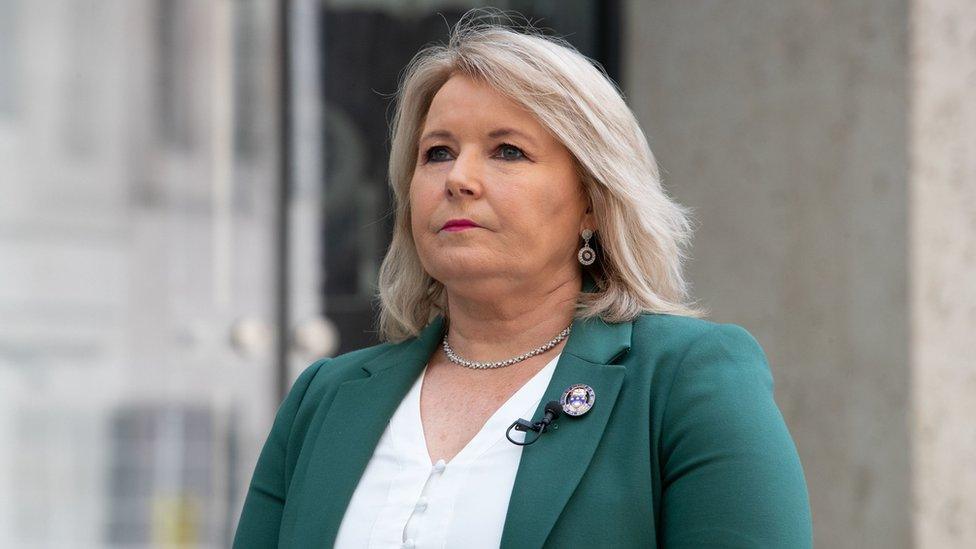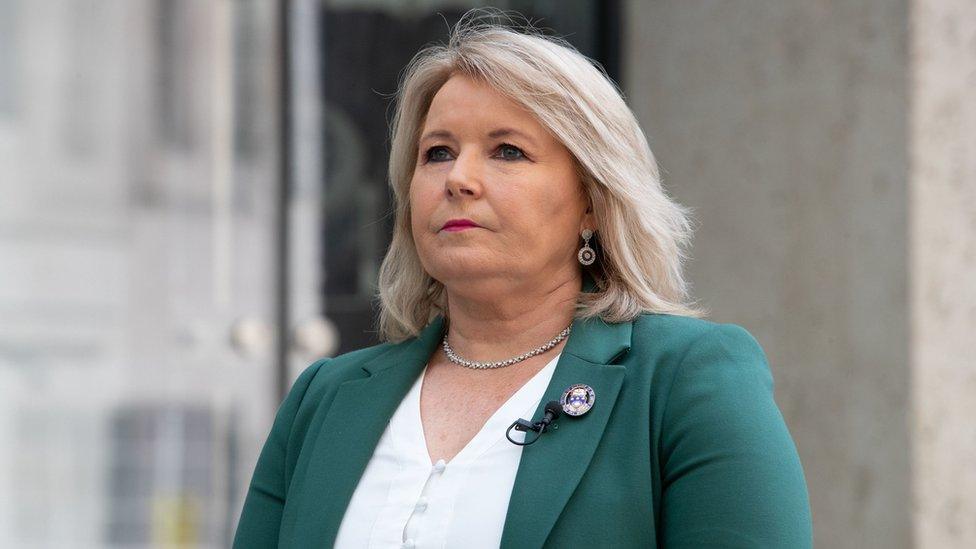England nurse strikes end as vote turnout too low
- Published

Strike action by nurses at the Royal College of Nursing will not continue after the union's ballot of its members in England failed to achieve a mandate.
While most of those members who cast a ballot voted to continue industrial action, the proportion taking part in the vote was too low for it to count.
Just over 43% took part - below the 50% threshold required by trade union laws.
The RCN balloted its members after the previous six-month mandate for strike action had expired.
Its members were among a minority of health staff who rejected the government's pay deal of a 5% rise this year and a lump sum of at least £1,655.
Members of Unison - the biggest NHS union - and those belonging to the bodies representing physios and midwives also backed the deal, which has now started to be paid.
It means only Unite in England has a mandate for strike action - and that is only for local strikes among some ambulance staff and support workers.
The Society of Radiographers is still balloting its members.

RCN general secretary Pat Cullen said she was 'proud' of her members
This pay deal and dispute is separate to the one involving members of the British Medical Association as doctors are on a different contract.
Junior doctors are due to take part in five-day strike next month, while the results of the strike ballot of consultants closed on Tuesday. An announcement on that is due soon.
'Morale is low'
RCN general secretary Pat Cullen said she was "proud" of her members and said while many will be disappointed with the outcome the fight for fair pay and safe staffing would continue.
She said she was meeting ministers this week over the NHS workforce plan which is due to be published soon and she would continue to make the case for the profession.
"I know staff morale is low and the staffing crisis is set to worsen without immediate action.
"We have started something special - the voice of nursing has never been stronger and we're going to keep using it."
A spokeswoman for the Department of Health and Social Care said it welcomed the end of the dispute and "hugely valued" the work of nurses.
"We hope other unions who remain in dispute with the government recognise it is time to stop industrial action and move forward together," she added.
Members of the RCN have taken part in eight days of strikes since the start of December.
They have involved around half of front-line services.
Meanwhile, strike action in Wales has been paused by the RCN as they have entered formal pay talks with ministers there.
An offer by ministers in Scotland was accepted by RCN members earlier in the year.
Related topics
- Published2 May 2023

- Published14 May 2023
